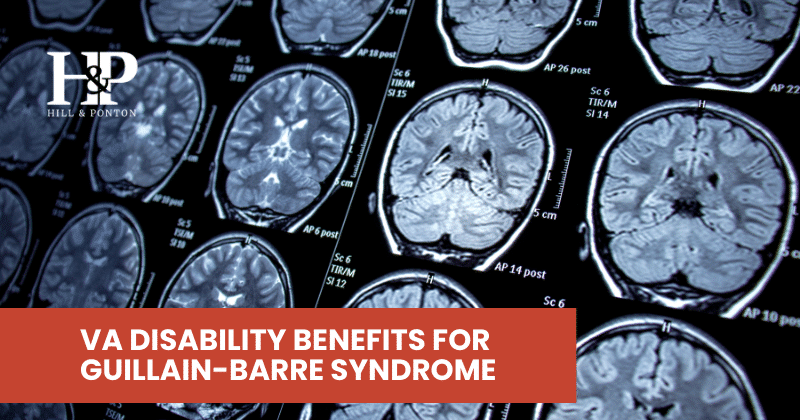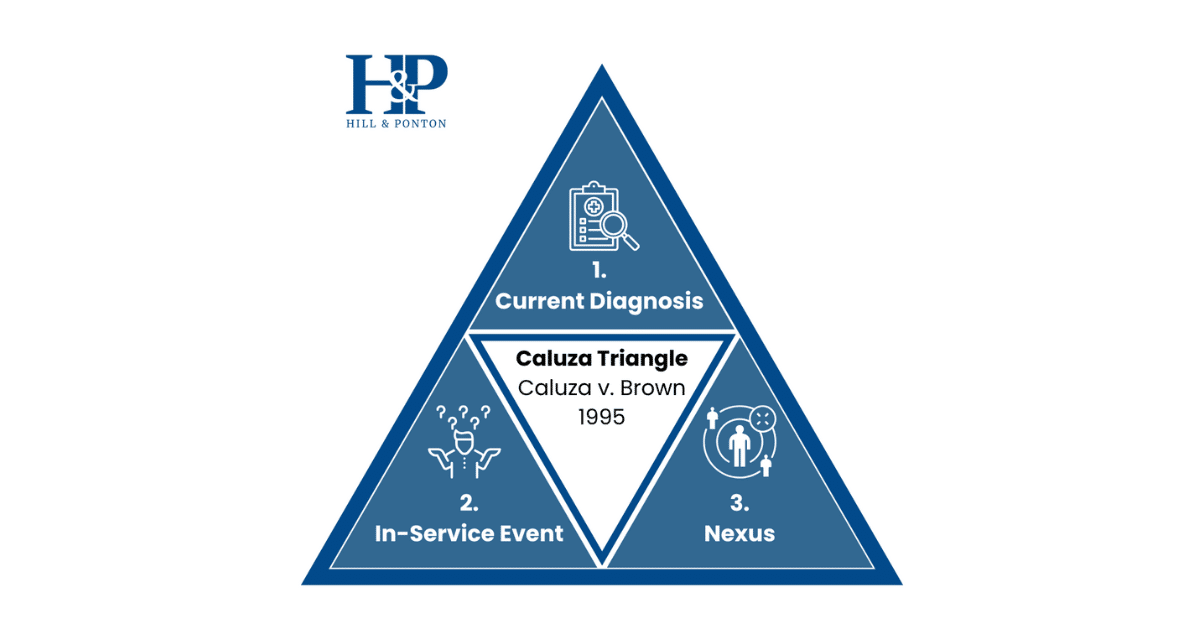If you’re a veteran with Guillain-Barre Syndrome (GBS), you know firsthand how serious and debilitating this rare condition can be.
GBS is a neurological disorder in which your immune system attacks your nerves, causing weakness and tingling in your hands and feet, which can quickly spread and paralyze your entire body.
In severe cases, it’s a medical emergency that requires hospitalization.
The exact cause of GBS is unknown, but it’s often linked to recent infections such as COVID-19, respiratory or gastrointestinal infections, and the Zika virus.
While there’s no known cure for GBS, various treatments can help manage symptoms and reduce the duration of the illness.
However, some severe cases can be fatal, and those who recover may experience long-term effects such as weakness, numbness, or fatigue.
As a veteran with GBS, you may be eligible for VA disability compensation if your condition has had a significant impact on your daily life and ability to work.
This financial assistance can help cover expenses and improve your quality of life.
To learn more about the benefits available and how to apply, keep reading.
VA Rating Criteria for Guillain-Barre Syndrome
If you’re a veteran with Guillain-Barre Syndrome (GBS), you may be eligible for VA disability compensation.
The VA rates GBS according to the severity of your symptoms and how much they impact your daily life.
To receive compensation, you need an accurate diagnosis and thorough documentation of your symptoms.
The VA uses the Disability Rating Schedule to determine the level of compensation you’re entitled to.
This rating schedule assigns a percentage of disability based on the severity of your symptoms.
The higher your disability rating, the more financial assistance you may be eligible to receive.
Here’s an overview of the VA Disability Rating Schedule:
- The rating schedule ranges from 0 to 100 percent in increments of 10 percent.
- Each condition has its own diagnostic code and rating criteria.
- The schedule takes into account the severity of your condition, as well as the impact it has on your ability to work and perform daily activities.
When it comes to GBS, the VA will rate your condition based on the severity of your symptoms, such as muscle weakness, numbness, and difficulty breathing.
They’ll also consider any long-term effects of your condition, such as chronic pain or muscle weakness.
It’s important to note that accurate diagnosis and documentation are crucial to receiving the compensation you deserve.
Your medical records should provide a clear description of your symptoms, including the onset and progression of your condition.
This information will help the VA determine the appropriate disability rating and compensation for your case.
The Hughes Functional Grading Scale (HFGS)
The Hughes Functional Grading Scale (HFGS) Score is a tool that doctors use to measure how well someone with GBS can function.
It’s important because it helps the doctors decide how severe the condition is and what kind of treatment is needed.
The HFGS score is a scale from 0 to 6. A score of 0 means the person is healthy and a score of 6 means the person has died.
The scores in between describe how much help the person needs to move around.
The following table explains the Hughes Functional Grading Scale (HFGS) Score:
| HFGS Score | Description |
| 0 | Healthy state |
| 1 | Minor symptoms, but the veteran can still run |
| 2 | Ability to walk without help, but cannot run |
| 3 | Ability to walk with help |
| 4 | Bedridden or chair-bound |
| 5 | Requires a mechanical ventilator |
| 6 | Dead |
Doctors use the HFGS score to keep track of a person’s symptoms over time.
This is important because it helps the VA decide how much disability compensation the person should receive.
If the person’s symptoms get better over time, it may be harder to get a permanent disability rating.
But if the symptoms get worse and don’t respond to treatment, the person may be able to get a higher disability rating.
Were you denied benefits for Guillain Barre Syndrome and need help filing an appeal? Contact our team today and let us help.
VA Diagnosis Code for Guillain-Barre Syndrome
The VA uses diagnosis codes to designate the physical or mental condition. For GBR, they use the Poliomyelitis code which is 38 C.F.R. § 4.124a, Diagnostic Code 8011.
If your GBS is considered an “active febrile disease,” meaning you have ongoing symptoms and a fever, you’ll receive a 100% rating.
This means you’re eligible for the maximum amount of VA disability compensation available for GBS.
However, if your symptoms have improved and your condition is now considered residual or minimal, you’ll receive a 10% rating.
This means your condition is still recognized by the VA, but its impact on your daily life is not as significant.
The VA disability rating takes into account the functional impairment caused by your GBS.
This means that the more severe your symptoms are, and the more they impact your ability to perform daily tasks, the higher your rating will be.
For example, if you’re unable to walk without assistance, you may receive a higher rating than someone who can walk independently but experiences numbness in their limbs.
VA Disability Rating for GBS
If you are a veteran with Guillain-Barre Syndrome, you may be eligible for VA disability compensation.
The VA will determine your rating based on the severity of your condition and how it affects your daily life.
The VA uses the VA Disability Rating Schedule to assign ratings to different disabilities.
The schedule has a scale of 0 to 100, with 10% increments.
The higher your rating, the more benefits you are entitled to.
The rating you receive for GBS will depend on the extent to which the disease has affected your daily life and your ability to function.
For example, if you are unable to walk without assistance, you may receive a higher rating than someone who is able to walk independently.
Here are some examples of how the VA determines ratings for GBS:
- 0% rating: If you have fully recovered from GBS and have no residual symptoms or impairment, you will receive a 0% rating.
- 10% rating: If you have mild symptoms that do not interfere with your daily life, such as slight weakness or tingling in your hands or feet, you may receive a 10% rating.
- 20-40% rating: If your GBS has caused moderate to severe symptoms that significantly impact your daily life, such as difficulty walking or standing for long periods of time, you may receive a 20-40% rating.
- 50-100% rating: If you have severe symptoms that completely limit your ability to function independently, such as being bedridden or requiring the use of a mechanical ventilator, you may receive a 50-100% rating.
It is important to note that the VA considers the impact of your condition on your functional impairment when determining your rating.
This includes your ability to perform activities of daily living, such as bathing, dressing, and eating.
Similar Disorders to GBS
Each of these conditions involves damage to the peripheral nerves, resulting in weakness and other symptoms.
Here is a brief description of each:
- Acute inflammatory demyelinating polyneuropathy (AIDP): This is the most common subtype of GBS, characterized by inflammation and damage to the protective myelin sheath around the nerves.
- Acute motor axonal neuropathy (AMAN): This subtype of GBS affects the nerve fibers that control movement (motor nerves), resulting in muscle weakness and paralysis.
- Acute motor-sensory axonal neuropathy (AMSAM): This subtype of GBS affects both motor and sensory nerves, leading to weakness and loss of sensation.
- Miller-Fisher syndrome: This is a rare variant of GBS that affects the nerves in the eyes, causing vision problems, as well as the nerves that control movement and sensation in the face and limbs.
- Chronic inflammatory demyelinating polyneuropathy (CIDP): This is a chronic form of GBS that lasts longer than 8 weeks and can lead to long-term damage to the nerves.
- Multifocal motor neuropathy: This condition affects the motor nerves in the limbs, resulting in weakness and muscle wasting.
Applying for VA Disability Benefits for GBS
If you’re a veteran with Guillain-Barre Syndrome, you may be eligible for VA disability benefits.
The process for applying for these benefits involves the following steps:
- Complete and submit an application: You can apply for VA disability benefits online, by mail, or in person at a regional VA office. The application will ask you for personal information, details about your service history, and information about your disability.
- Obtain medical evidence: You’ll need to provide medical evidence that supports your claim. This may include records of your diagnosis, treatment, and prognosis. It’s important to obtain all relevant medical records and provide detailed information about your condition.
- Attend any necessary exams: The VA may require you to attend a medical exam (C&P exam) to evaluate your condition. It’s important to attend these exams and provide detailed information about your symptoms and how they affect your daily life.
- Wait for a decision: After you’ve submitted your application and all necessary evidence, the VA will review your claim and make a decision about your eligibility for benefits.
To increase the likelihood of a successful claim, it’s important to provide as much detailed information as possible and to obtain medical evidence that supports your claim.
Here are some tips for increasing the likelihood of a successful claim:
- Keep detailed records of your medical treatment and symptoms
- Obtain statements from family, friends, and coworkers that describe how your condition affects your daily life
- Work with a veterans service organization (VSO) to help you navigate the claims process and ensure that you’re providing all necessary information and evidence
By following these tips and providing detailed information and medical evidence, you can increase the likelihood of a successful claim for VA disability benefits.
In conclusion, Guillain-Barre Syndrome (GBS) can be a challenging condition for veterans to live with, but there is help available.
VA disability benefits can provide financial assistance to veterans who are dealing with the effects of GBS. It’s important to have an accurate diagnosis and thorough documentation of symptoms to increase the chances of a successful claim.
Additionally, understanding the VA rating criteria and how ratings are determined can also help in the application process.
If you or someone you know is a veteran living with GBS, reach out to the VA to explore available benefits and resources.
With the right support and care, veterans with GBS can live fulfilling lives.
Have Questions About Guillain Barre Syndrome Benefits?
The attorneys at Hill & Ponton are here to support you in your claim and determining your Guillain Barre Syndrome disability percentage. If you are intending to appeal a denied claim, you can contact us for an evaluation.




